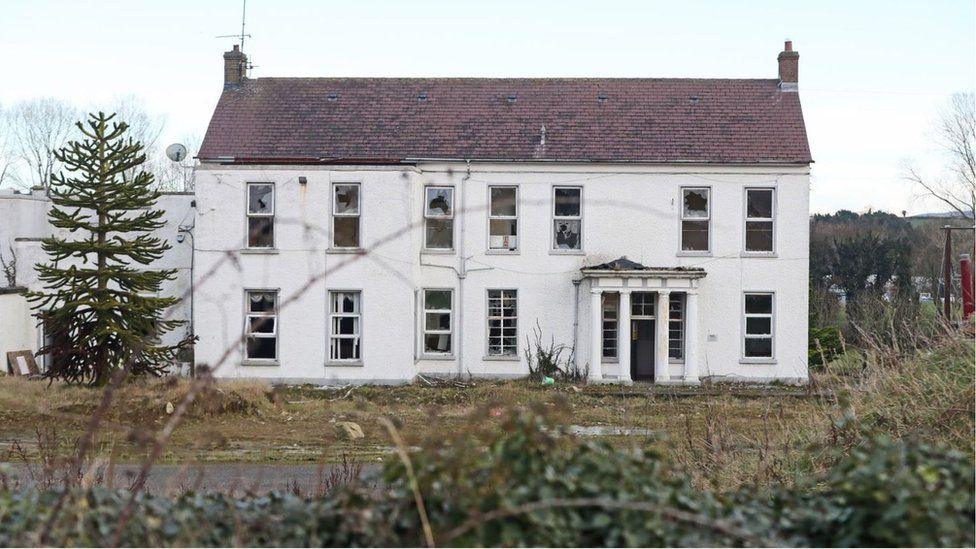Adoption tracing requests rise after NI mother-and-baby homes report
- Published
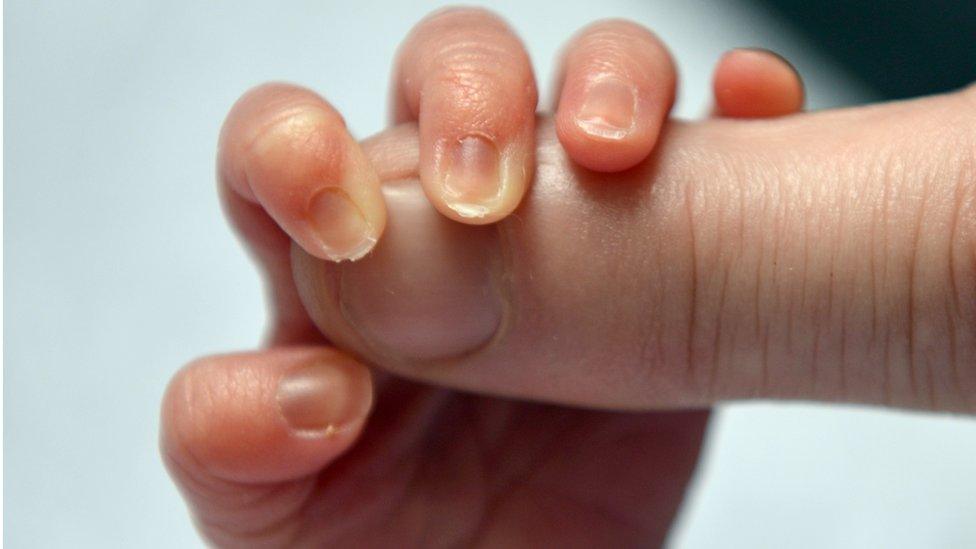
Some children born in mother and baby homes are yet to meet their birth mothers
There has been a rise in requests to trace birth relatives after Stormont's recent report into mother-and-baby homes, assembly members have been told.
Calls to health trusts have risen and 34 new adoption tracing referrals have been made since the 26 January report.
The details were outlined on Thursday at a Stormont health committee meeting.
But it heard accessing birth records is very challenging in some cases and even a full public inquiry may not be able to uncover answers for some families.
That admission was made by Judith Gillespie, who chairs the inter-departmental working group (IDGW) on mother- and-baby institutions.
'Very scant records'
She appeared before the health committee to update its members on the progress of setting up a new independent investigation into mother-and-baby homes and Magdalene laundries in Northern Ireland.
Survivors who spent time in the institutions have been asked to co-design the investigation and a number of options are available to them, including a full public inquiry.
Ms Gillespie was asked by the committee if she believed that is now the only way to uncover the truth.
She replied that a full statutory inquiry, with powers to compel witnesses to testify and demand access to records would very much help the process of assisting survivors to trace birth information.
But she warned the process is complicated as full records have not survived in some cases and residents' names were often changed when women and girls entered mother-and-baby homes.
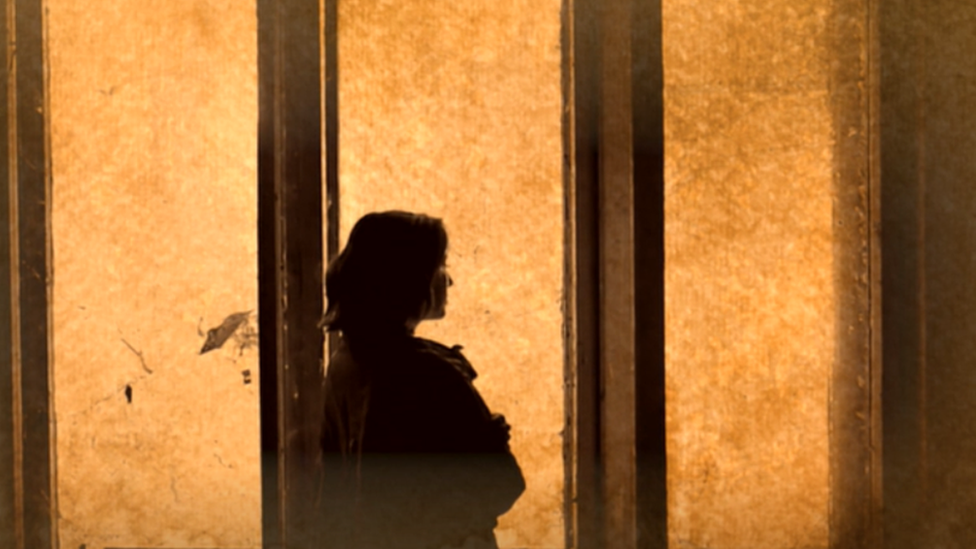
Thousands of women and girls entered the institutions in Northern Ireland over a 68-year period
Ms Gillespie said homes had a concerted policy of not asking or documenting the circumstances of how women had become pregnant, even though many of them were victims of rape or incest.
"It was all very much 'no questions asked', very scant records kept and therefore that makes tracing archive records very, very challenging," Ms Gillespie said.
"So in answer to your question, is the public inquiry the only way - I would say even with a public inquiry; even with full access to archive records; even with the statutory powers to compel witnesses; there may still be some questions that remain forever unanswered and that's desperately sad.
"But certainly, powers to compel, powers to require records would be very, very helpful to get answers to as many people as possible."
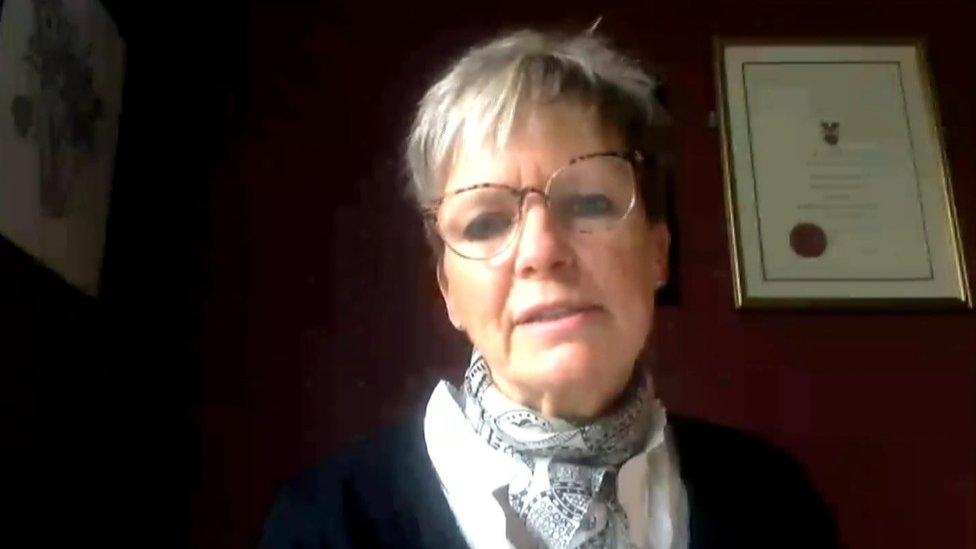
Judith Gillespie gave evidence to the committee through an online video link
The committee asked what was being done to protect records that are known to have survived, to ensure they are not destroyed before the investigation begins.
Ms Gillespie said that Health Minister Robin Swann wrote to the institutions in December, advising them to preserve their archives as they may be needed for a future inquiry, but she conceded that the minister does not have any powers to enforce this request.
Gerry Carroll, from the People Before Profit party, suggested a stronger approach was needed, asking if the police should now be called in to "seize" the documents.
Ms Gillespie replied that it was important to point out that several institutions had already co-operated with the team who produced January's report, and had been helpful when asked to provide their records.
She also said that not all required documents are within the Police Service of Northern Ireland's jurisdiction, as many babies were taken across the border or abroad during the adoption process.
Ms Gillespie added that cross-border adoptions made access to birth records more difficult, but she has met the Irish Minister For Children Roderic O'Gorman to discuss north-south co-operation on the issue.
In the Republic of Ireland, adopted people are not automatically entitled to access their original birth certificates or information about their biological parents.
The issue has been widely debated in recent months and several Irish politicians are proposing new legislation to make it easier for adoptees to access their personal records.
The Stormont committee also took evidence from Eilís McDaniel from the Department of Health, who confirmed that there have been 34 new adoption tracing referrals since January's report was published.
Ms McDaniel said 12 of those new cases had a direct connection to mother-and-baby homes.
She added that the department is examining the resources needed to support staff involved in the tracing process and has the capacity to expand this support to meet demand should it be required.
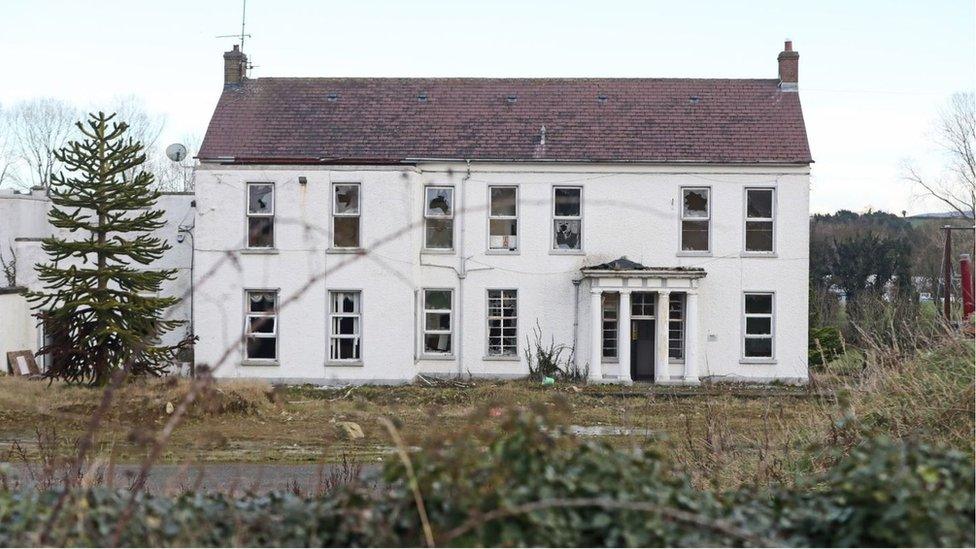
Marianvale in Newry, County Down, is among the institutions where unmarried women gave birth
Ms Gillespie said a number of people who had never spoken before about their experience of adoption or mother-and-baby homes were now coming forward, following recent media coverage of adoption and the publicity surrounding January's report.
She said some of them just wanted to share their personal stories, while others want to participate in the designing of the independent investigation into mother-and-baby institutions.
The committee was told that it was important that the process involves as many survivors as possible and that details of how people can get involved has been published on the NI Direct website, external.
- Published27 January 2021

- Published26 January 2021

- Published26 January 2021
